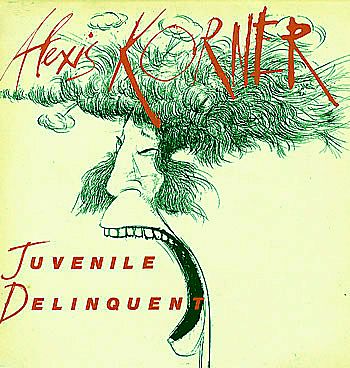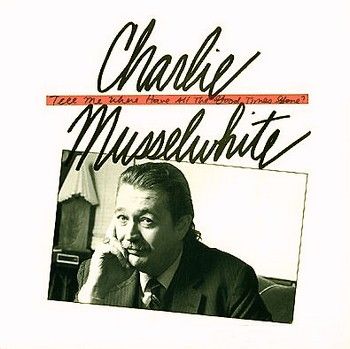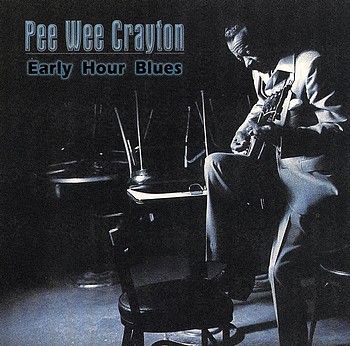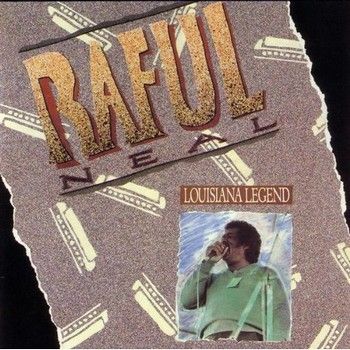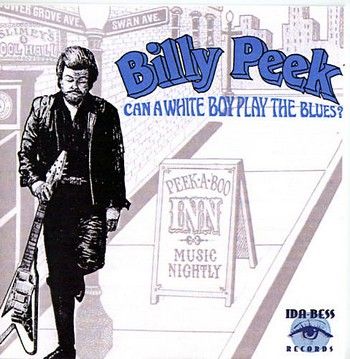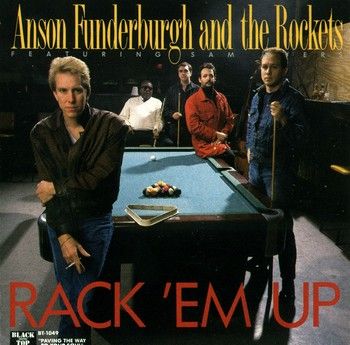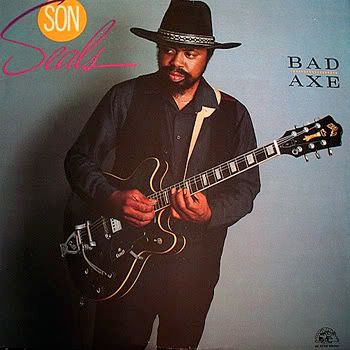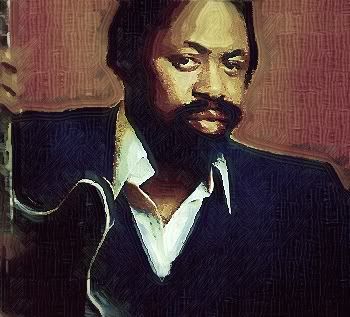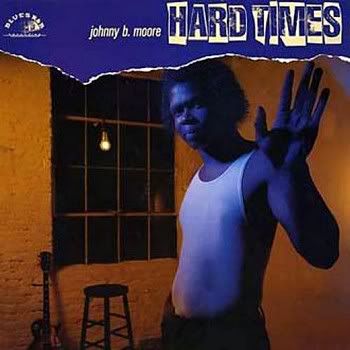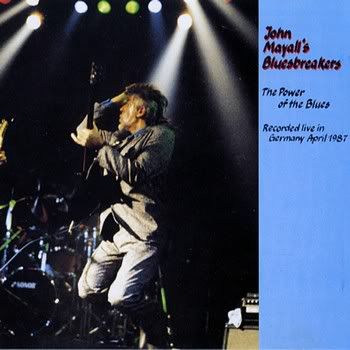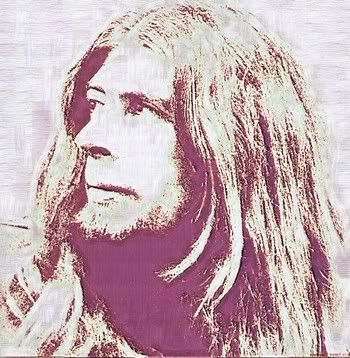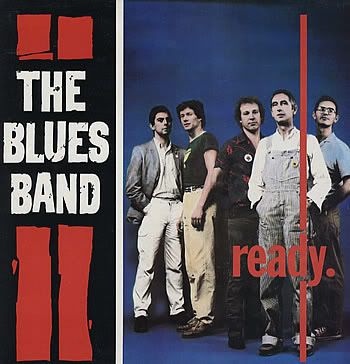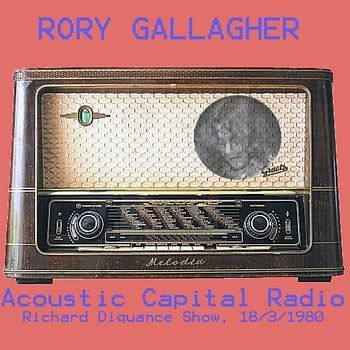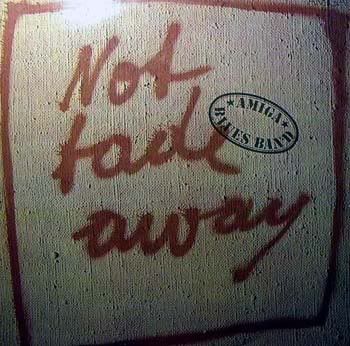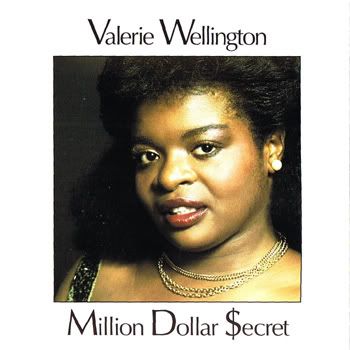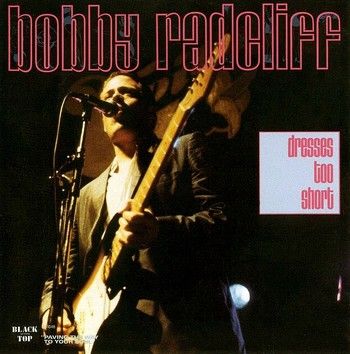
Bobby Radcliff - Dresses Too Short - 1989 - Black Top Records
"...the return of of guitarist Bobby Radcliff as a recording artist is a cause for celebration. Radcliff, one of the most underrecognized players on the scene, is a phenomenally gifted musician whose soulful delivery, funky picking, and sparse, stinging West Side sound (as personified by his hero Magic Sam) is distinctive and eleltrifying." - Hal Horowitz in Blues Revue
Bobby Radcliff turns in a tight, tough update of Magic Sam-style Chicago blues with Dresses Too Short. The songs are either too familiar or a weak approximation of the genre, but the playing throughout is terrific -- his guitar playing is alternately subtle and ferocious. Best of all is the handful of tracks cut with Ronnie Earl & the Broadcasters who spur Radcliff on to his best performances. © Thom Owens © 2011 Rovi Corporation. All Rights Reserved http://www.allmusic.com/album/dresses-too-short-r89397
"FIVE STARS!...Not since Stevie Ray Vaughan's first set has there been such a smashing bow by a blues-rock guitarist." - "downbeat" magazine
A great Texas/Chicago style blues album by the unheralded Maryland born blues guitarist, Bobby Radcliff. Andy Glass, in The Music Paper said that "Conventional musicritese - scorching, blistering, pyrotechnical and all that jive - fails to convey the heat in these grooves. More than heat, this platter's got muscle. A tightly coiled, spiky, New York kinda muscle. It's a new kind of blues, daring, dangerous and devastating." Musicians on this album include Ron Levy on keys, Ronnie Earl on rhythm guitar, Steve Gomes on bass, and Mark "Kaz" Kazanoff on sax, who was also responsible for the horn arrangements. Buy Bobby's tremendous "There's a Cold Grave in Your Way" album and promote great blues
TRACKS / COMPOSERS
1 Ugh! - Christian 3:39
2 Bonehead - B. Radcliff, R. Earl 3:10
3 Stick Around - G. Guy 3:34
4 You Haven't Hurt Me - Ron Levy 4:10
5 Going Home Tomorrow - Bartholomew, Domino 3:17
6 Next Woman I Marry - Trad. 2:46
7 Dresses Too Short - Syl Johnson 4:51
8 Keep Loving Me Baby - Otis Rush 4:15
9 Alimony Blues - F. Simon 2:34
10 Hard Road To Travel - Harris 5:00
11 Kool And The Gang - Kool & The Gang 3:56
MUSICIANS
Guitar, Vocals - Bobby Radcliff
Guitar [Rhythm] - Ronnie Earl (tracks: A2, A3)
Bass - David Hofstra (tracks: A1, A4, A5, B1 - B5), Steve Gomes (tracks: A2, A3)
Organ, Piano - Ron Levy (tracks: A1, A4, A5, B1 - B5)
Drums - Per Hanson (tracks: A2, A3), Richard "Dickie" Dworkin (tracks: A1, A4, A5, B1 - B5)
Saxophone [Tenor] - Mr. Excello (tracks: A1, A4, A5, B1 - B5), Saxy Boy (tracks: A1, A4, A5, B1 - B5) [The Kamikaze Horns]
Saxophone [Tenor & Baritone]: Horn Arrangements - (tracks: A1, A4, A5, B1 - B5) - Mark "Kaz" Kazanoff [The Kamikaze Horns]
SHORT BIO
Although Bobby Radcliff has spent the last 25 years honing his craft in bars around his native Washington, D.C., and in New York City and Chicago, the 45-year-old guitarist, singer and songwriter is just now coming into his prime. Born September 22, 1951, Radcliff grew up in Bethesda, MD and had easy access to Washington, D.C. blues clubs, where he learned from people like Bobby Parker. Before graduating from high school, he'd already made several trips to Chicago to meet his idol, Magic Sam Maghett, owing to a small but growing blues club scene in Washington. Radcliff began playing when he was 12, and he started off taking classical guitar lessons. After his guitar teacher showed him some blues, he began buying every blues guitar album he could get his hands on. In 1977, Radcliff moved to New York City and worked in a bookstore by day until 1987, when he realized he was making enough money playing in clubs to give up his day job. Since he hooked up his recording deal with BlackTop Records, Radcliff has toured the U.S., Canada and Europe more than a dozen times, and his fiery guitar playing is always a festival crowd-pleaser. Parker has three excellent albums out on the BlackTop label that showcase his songwriting, guitar playing and soulful singing. They include his debut, Dresses Too Short (1989), Universal Blues (1991) and There's a Cold Grave in Your Way (1994). Collectors will seek out his 1985 vinyl release, Early in the Morning, on the A-Okay label. © Richard Skelly © 2011 Rovi Corporation. All Rights Reserved http://www.allmusic.com/artist/bobby-radcliff-p498/biography
MORE
When BOBBY RADCLIFF’s first album on the revered Black Top label hit record stores all over the world, critics declared him the next in a long line of guitar heroes. Jazz-lovers awarded him a coveted five-star review in downbeat, New York rockers took him to heart for his edgy energy, and blues fans everywhere knew their favorite music was alive and well. Long before all that, it was the time he spent in the sixties with “Magic Sam” Maghett that bound him forever to the raucous mixture of deep blues and flashy funk that defined the sound of Chicago’s West Side. After running away from a suburban childhood in Chevy Chase, Maryland, at the tender age of seventeen Bobby sought out the guitar master who had changed his life on record. With the help of Bob Koester, Bruce Iglauer, and Jim O’Neal (the blues trinity at Chicago’s legendary Record Mart), he found his idol in Cook County Hospital recovering from a minor stroke. Although he was a little shocked that anyone would come so far simply to meet him, Sam took Bobby under his wing and introduced him to the Chicago blues scene at the peak of the blues renaissance.“Seeing Sam perform was like watching Elvis. He had that total kind of style and magnetism… beyond musical genre and beyond race,” Radcliff remembers. “He showed me the way to sing in a clear concise way, with a crisp and clean sound on the guitar. And then there’s the freedom of working in a trio, but also the risks. Don’t forget, these were the days of Cream and Hendrix, with tons of distortion alternating with lavish studio production. I wanted something different!” By the release of “Dresses Too Short” in 1989, Bobby was already a twenty-year veteran of the club circuits in Washington, DC and New York City. He had shared the stage with the likes of Otis Rush, Roy Buchanan, James Cotton, Danny Gatton, Lowell Fulsom, and Dr.John. In the nineties, three more brilliant albums followed on Black Top Records: “Universal Blues” (1991), “There’s A Cold Grave In Your Way” (1994), and “Live At The Rynborn” (1997). With the label based in New Orleans, Bobby also had the further pleasure of touring with more of his idols, label-mates like Snooks Eaglin, Earl King, and George Porter, Jr. Unhappily, Black Top founder Nauman Scott passed on in 2002, and the label never really recovered. As the rest of the record industry was racked with corporate consolidations, format-wars, and the hi-tech upheaval of the Internet, many artists have found themselves out in the cold. Bobby Radcliff made a choice: make your own records your own way on your own label, with no one to please but the fans. It’s out of this philosophy that Rollo Records was born, to provide a home for musicians too uncompromising, too challenging, and too kick-ass to either pigeon-hole or ignore. Combining vintage techniques and current technologies, we put the artists in the driver’s seat and hit “the highway to your soul.” “Natural Ball” is our first offering and one to make any label proud. © http://www.bobbyradcliff.com/bio.html


